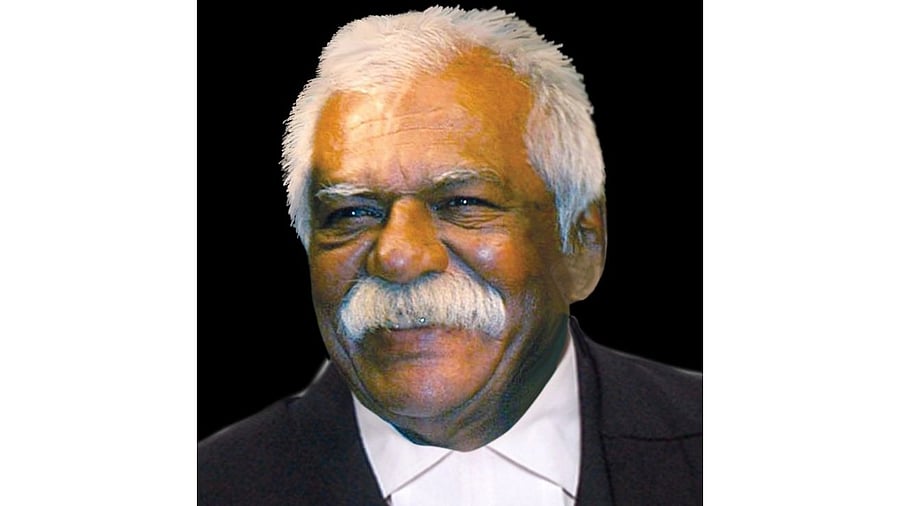
L G Havanur
Credit: X/@IamGKumarNaik
The 76th Constitution Day is an ideal occasion to remember one of Karnataka’s greatest champions of social justice, L G Havanur. His life and work represent the living spirit of our Constitution, a relentless pursuit of equality, dignity, and opportunity for all. For those of us who are trying to walk the same path he did, his journey is not just a story of policy reform but also of collective aspiration, resilience, and courage. Havanur not only changed the course of Karnataka’s social history but also showed how the ideals enshrined in the Constitution could be translated into concrete public policy.
In the years following Independence, India faced a fundamental challenge: how to define and address backwardness in a deeply stratified society. Havanur provided clarity and courage in this debate. When Chief Minister Devaraj Urs appointed him as Chairman of the Karnataka Backward Classes Commission in 1972, he undertook a scientific and data-driven study that had never been attempted before. His survey covered 3.55 lakh individuals across 378 villages and towns, examining the lives of 171 castes and communities.
The result was the landmark Havanur Report, submitted 50 years ago, on November 19, 1975. It became a turning point not only for Karnataka but also for India. For the first time, social justice policy was backed by data and grounded in lived experience.
Havanur’s distinction between caste as identity and caste as a marker of disadvantage remains one of the most important contributions to India’s understanding of inequality. His recommendations formed the bedrock for future affirmative action policies and influenced the Mandal Commission at the national level.
Shri Havanur’s work was not easy. He faced stiff opposition from powerful sections within the bureaucracy and society, and his family endured threats. Yet, he stood firm, driven by conviction, not convenience. His courage reminds us that reforms in India have always demanded not only intellect but moral strength.
As Karnataka’s Minister for Law, Social Welfare, Backward Classes, and Minorities in 1978–79, Havanur translated vision into institution-building. Having personally experienced discrimination as a student, he made it his mission to create safe spaces for marginalised youth. Under his leadership, nearly 2,000 hostels were established across the state, ensuring that access to education was not limited by social background. His policies on rural employment, housing, sanitation, and healthcare reflected a holistic vision of empowerment, one that remains relevant even today.
Havanur’s brilliance was recognised internationally. He was invited to global institutions, including Lawry’s Committee in Washington, and later contributed to the drafting of South Africa’s post-apartheid constitution for the African National Congress. His legacy thus transcended Karnataka, making him a global voice for equality and justice.
As we observe the centenary of his birth this year, his message continues to resonate with even greater urgency. Havanur believed that those who benefited from affirmative action carried a moral duty to support others with a “pay it forward” philosophy that embodied collective progress and long-term social transformation. In today’s times, when public debate often turns to symbols and identity rather than substance, it is important to return to Havanur’s emphasis on unity, dignity, and shared growth. The future of the AHINDA communities depends not on fragmentation, but on solidarity and sustained effort toward equality rooted in empathy.
Karnataka’s inclusive development story owes much to the path L G Havanur charted. On this Constitution Day, his life reminds us that social justice is not a gift — it is the result of struggle, study, sacrifice and unwavering faith in democracy. As we celebrate the Constitution that guarantees equality to all citizens, let us also remember those who gave it life through action, who ensured that rights translated into opportunities for the most marginalised, and who showed the courage to walk alongside him in times of resistance.
Carrying forward his legacy means recommitting ourselves to the ideals of justice, liberty, equality, and fraternity, not just in words, but in governance and in everyday life. It means standing up for fairness even when it is inconvenient, widening the circle of opportunity, and ensuring that every young person can dream. That is the proper tribute to L G Havanur and to the Constitution he so deeply believed in.
(The writer is a retired IAS officer and Congress Lok Sabha member from Raichur)
Disclaimer: The views expressed above are the author's own. They do not necessarily reflect the views of DH.